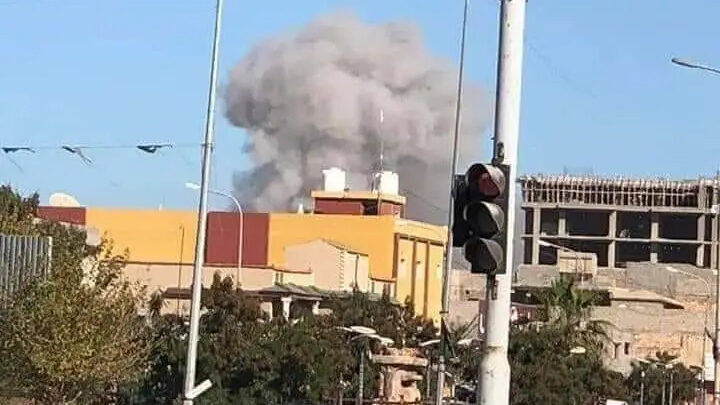On May 25, the Tripoli-based Libyan Government of National Unity (GNU) said it had conducted airstrikes against smuggling networks in the western coastal city of Zawiya.
A statement released by the United Nations-recognized government said that the airstrikes hit “hideouts used by gangs of smugglers in fuel, narcotics and humans” in the outskirts of Zawiya, which is located some 45 kilometers to the west of Tripoli.
The airstrikes ordered by interim Prime Minister Abdulhamid Dbeibah had “successfully hit their targets,” the statement added.
Material losses were reported after the airstrikes. However, there no casualties, according to multiple Libyan news sources.
The House of Representatives (HoR), which is based in the eastern city of Benghazi, said the target of the airstrikes was in fact the home of Zawiya lawmaker Ali Bouzribah, an known opponent of the GNU which is headed by Abdul Hamid Dbeibeh.
“Parliament followed with deep concern the drone strike on Zawiya targeting the home of the city’s representative Ali Bouzribah,” said a statement issued by the speaker’s office, adding that it condemned the “flagrant attack… on civilians and civilian installations.”
The UN Support Mission in Libya said it was “in contact with the concerned national authorities about the air strikes that took place yesterday in Zawiya”.
“UNSMIL reminds all involved in the incidents in Zawiya that any law enforcement measures should respect relevant national and international laws. Protection of civilians should remain paramount,” it added.
Libyan news sources noted that the airstrikes were carried out by Bayraktar TB2 combat drones, which were deployed by Turkey in Libya around four years ago. It is unclear however if the drones were being operated by the GNU armed forces, or the Turkish military which is still present in different bases in the western region of the country.
Despite the condemnation of the HoR, a second wave of airstrikes hit Zawiya on March 27 and 28. A number of fuel tankers and other targets were reportedly hit. There were no casualties, however.
Violence and instability have been tearing Libya apart since a NATO-backed uprising toppled and killed strongman Moamer Kadhafi in 2011.
Today, the country is split between the GNA and a rival government based in Benghazi and backed by both the HoR and the Libyan National Army, which is led by Field Marshal Khalifa Haftar.
MORE ON THIS TOPIC:





the muslims use many pretexts to kill each other.
this is the result of the weakness of the libyan people who no one but themselves to blame
none to blame? they were subjected to over 6 months of brutal nato bombing campaign, and invaded by hordes of nato-backed and trained terrorists. libya is a country of less then 7 million people (large area of mostly desert terrain makes their army vulnerable to western airstrikes as it’s harder to conceal their movement), what kind of strength do you expect?
no country came to their aid so they stood little chance against an outright merciless onslaught of usa and the plethora of their allies, even arab traitors like qatar and saudi arabia sided against libyans.
libya’s fate is a consequence of existing in a unipolar world, thankfully this unipolar world will come to an end!
(had to post in 2 replies since sf keeps telling me “comment too long” -_-)
need i remind you that members of the jamahiriya itself collaborated with nato and since then you have seen no type of nationalist guerrilla movement within the country emerge
what happened to the jamahiriyah?